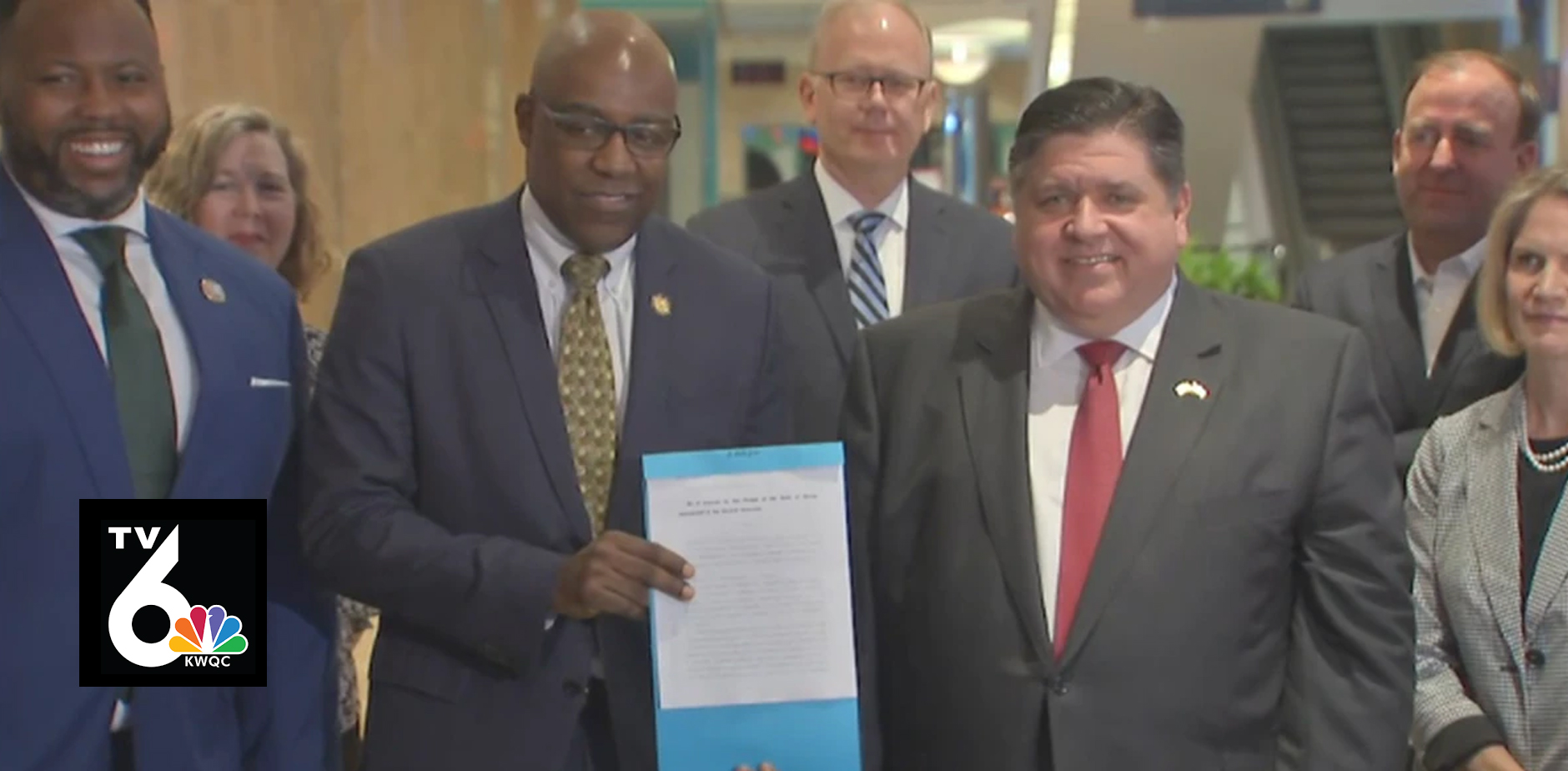
By Lizzie Seils | Published May 13
Attorney General Kwame Raoul and Gov. J.B. Pritzker stand with the newly signed organized retail crime law.(WGEM)
SPRINGFIELD, Ill. (WGEM) – Following viral videos in recent months depicting large groups rushing into stores and stealing as much merchandise as they can carry, Gov. J.B. Pritzker signed into law a bill meant to crack down on those types of crime.
The act takes on the issue from different angles in an attempt to address organized retail crime. Firstly, it creates a legal definition for organized retail crime and establishes a way for state’s attorneys offices across Illinois to communicate and discover the crime rings Attorney General Kwame Raoul said exist in the state.
A charge of organized retail crime would be defined as a Class 3 felony if someone knowingly engages with others in a theft of $300 or more in value. IF they do that at more than one establishment it’s also classified as a Class 2 felony.
They argue that definition prevents small-scale shoplifters from becoming the target of the stricter laws. Attorney General Kwame Raoul said his aim with his office’s research into organized retail crime has been to break down the “multi-billion” dollar industry in the resale market.
“This is not aimed at a low-income parent desperate to feed their child. It’s not about a kid making a short-sighted mistake,” Pritzker said. “This is about a multi-billion dollar industry of organized criminals carrying out sophisticated theft operations to turn a profit on the retail market.”
The law plans to expand the ability to communicate between police departments and give the state more power in prosecuting retail crime, including enacting the state Grand Jury to investigate and indict perpetrators.
They believe large-scale thefts like this are used to fund other illegal activities, like human trafficking and drug trading. Targets are often big box stores, pharmacies, hardware stores and even auto dealerships.
The crimes are quick and sometimes destructive. They’re described as “organized mobs” rushing into stores and taking as much as they can carry. Raoul and other shopping district representatives worry that keeps customers away from stores out of fear and hurts business overall.
“Organized retail crime has gone up, not only in Illinois but nationally,” Raoul said. “I’m talking about people who are afraid to walk out on Michigan Avenue to go shopping or the oak Brook Center or quite frankly in the neighborhoods. If you walk into a Walgreens or a CVS it becomes increasingly inconvenient because they have to protect their products, they have to get an attendant to unlock things. There’s all sorts of evidence of this going up not down.”
It also requires online retailers to verify sellers with a high volume of products to make sure the products aren’t stolen. Sellers will have to verify their identity with an address, phone number and business tax status if applicable. It would only apply to third-party sellers who post 200 or more discrete sales per year, and generate revenue of $5,000 or more.
That measure would help police identify potential stolen goods, but Raoul argues it is also a consumer protection measure to keep people from buying stolen items without knowing it.
“When these items are stolen and put on online marketplaces to unsuspecting consumers, some of these items are food items and if they’re not stored appropriately… it becomes a consumer protection issue,” Raoul said. “If it’s a new appliance, being sold as a new appliance with no warranty, it’s a consumer protection issue.”
